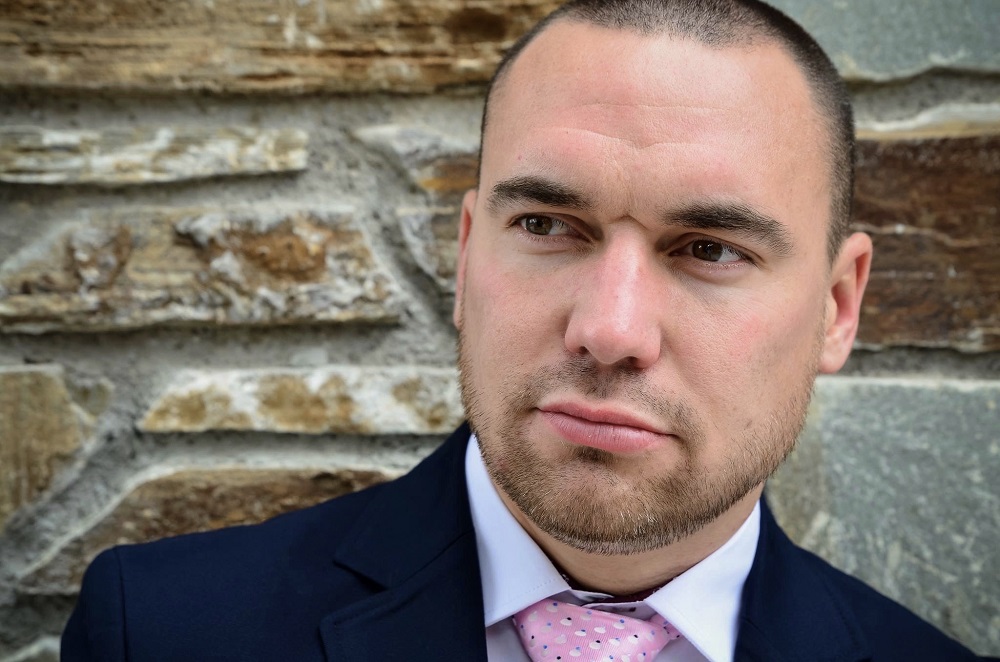HSE Academic Is Reviving the Spirit of Socrates
HSE Assistant Professor of Philosophy, Aaron James Wendland, recently launched a popular philosophy column in a prominent British Magazine: The New Statesman. In this interview, we ask Aaron about his research interests, his experience at HSE, and the rationale behind his new column on popular philosophy.

Aaron James Wendland, Assistant Professor at the HSE School of Philosophy
From Prof Wendland’s personal archive
— Congratulations on the column you are now running in the New Statesman! What motivated you to establish a popular outlet for philosophy?
— I’ve long been interested in politics and philosophy. And if politics is the art of practical activity and philosophy is the art of thinking, then surely it is worth doing some thinking before we act. So, I decided to create a space for publicly-minded academics to draw on their experience and education in order to address contemporary social and political issues.
— As a relatively new international faculty member at the HSE’s School of Philosophy, can you tell us a bit about your background and research interests?
— Prior to coming to the HSE, I completed a Doctorate in Philosophy at Somerville College, Oxford. My DPhil thesis explored Heidegger’s accounts of agency and artistic creativity and it argued that the freedoms we associate with individual choice and innovative linguistic expression are based on our ability to respond to the wants and needs of others.
More recently, I published a collection of essays entitled: Heidegger on Technology. This book examines the threat modern technology poses to human agency and the natural environment and explores potential responses to that threat.
I also have an interest in aesthetics and the philosophy of art. And since Moscow has an esteemed art history and an edgy contemporary art scene.
— Why did you choose to move to Moscow and take up a professorship at HSE?
— Having previously lived in London and New York, the energy and sheer amount of cultural activities on offer in Moscow was very attractive to me. I was also looking forward to the learning experience that comes when moving to a foreign country. And having now been in Moscow since January 2017, I appreciate the respect Muscovites have for the arts and their intellectual history.
As for the HSE, I was hired through the international faculty recruitement programme, and I saw the professorship I was offered in the School of Philosophy as an opportunity to do some interesting international work. Particularly, I had to choose between several standard professorships at various British and Canadian universities and a research professorship at the HSE that required me to engage with the international academic community and do what I can to enhance the HSE’s standing abroad. And given that I was keen to collaborate with academics around the world and do some serious philosophy, I decided the HSE was the right place for me.
— What sort of international activities have you been involved with since taking up your position at HSE?
— Apart from conferencing and publishing internationally, I founded an International Speaker Series with two of my colleagues in the School of Philosophy: Silver Bronzo and Ulrika Carlsson. The speaker series is designed to: facilitate exchanges between the Russian academy and the international academic community; help grow the English-speaking philosophy group in Moscow; and provide our visiting speakers with a chance to receive some constructive criticism and helpful feedback on their work.
The column I launched in the New Statesman is also an important international initiative. Specifically, as a faculty member at HSE, I will be working with some of the most influential philosophers writing today, including: Judith Butler (UC Berkeley), Jeff McMahan (Oxford), Martha Nussbaum (Chicago), Peter Singer (Princeton), and Timothy Williamson (Oxford), and the essays I edit and publish in the New Statesman will be read by hundreds of thousands of people around the world.
— Speaking of your column, what are some of the themes you and your contributors will be discussing in the near future?
— As I said in my inaugural essay, Socrates was famous for questioning his fellow citizens about the nature of justice and courage and other such virtues, and the new column aims to follow Socrates’ lead: that is, the column is designed to be a site for reasonable disagreement over contentious issues, with the goal of fostering dialogue between engaged citizens across the ideological spectrum. To that end, I will be publishing a piece by Alia Al-Saji (McGill) on ‘Colonialism and the Burqa Ban’, an essay by Simon Blackburn (Cambridge) on ‘Post-truth and Fake News’, and an article by Philip Pettit (Princeton) on ‘Brexit and Referendums as Constitutional Reform’ in the weeks ahead.
— Do you have anything you would like to add about Moscow, the HSE, or your attempt to popularize philosophy?
— From what I understand, Russian bureaucracy is tricky to navigate for people who were born and raised in Russia. And if that’s true, then I’m sure it would be impossible for me to manage on my own! So, I want to thank my departmental coordinator, Daria Drozdova, and fine folks in the International Faculty Support Office for all their hard work!
Also, if your readers would like to follow the popular philosophy column I am running in the New Statesman, then they are welcome to follow me on Twitter @ajwendland for regular updates.